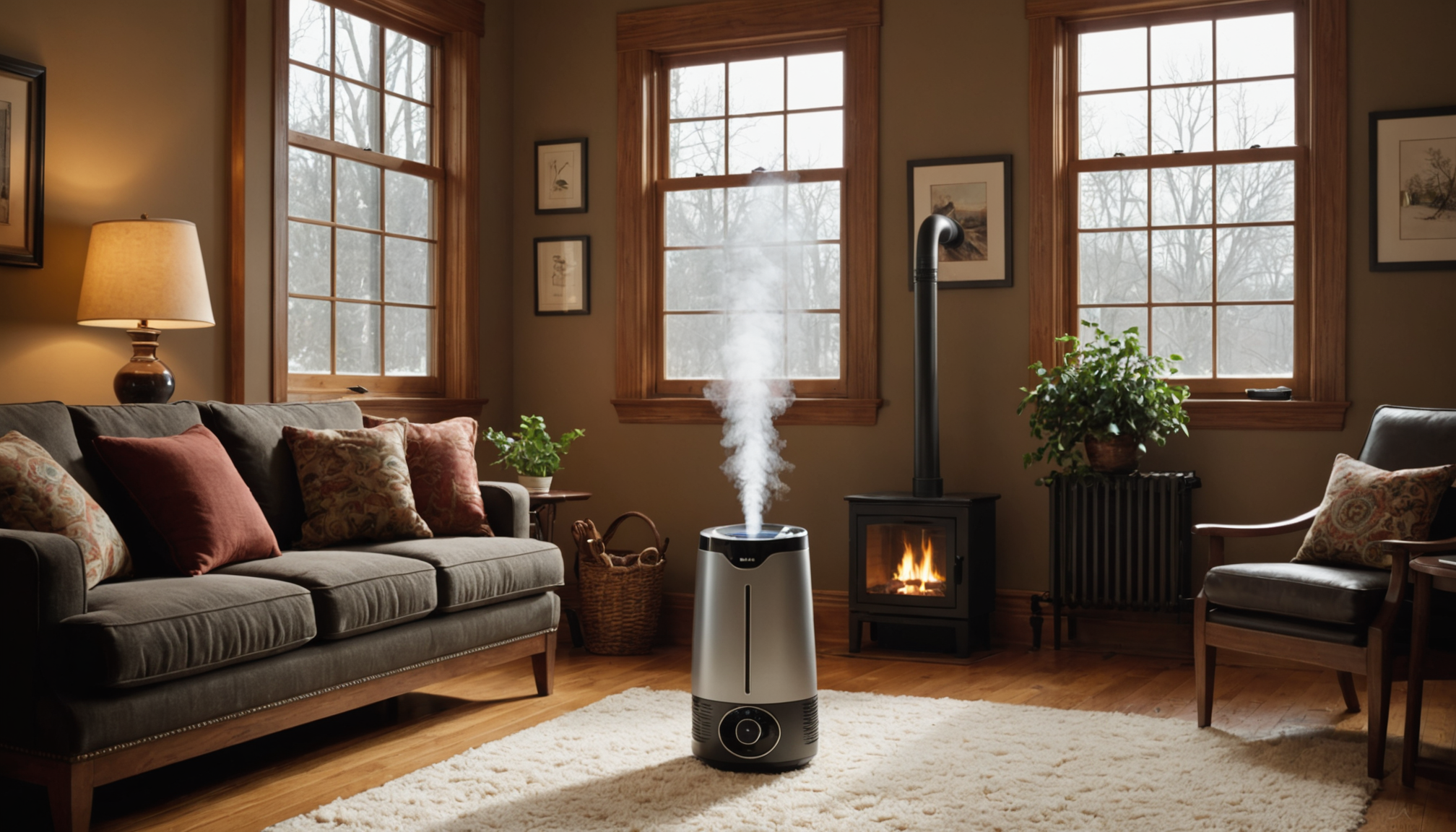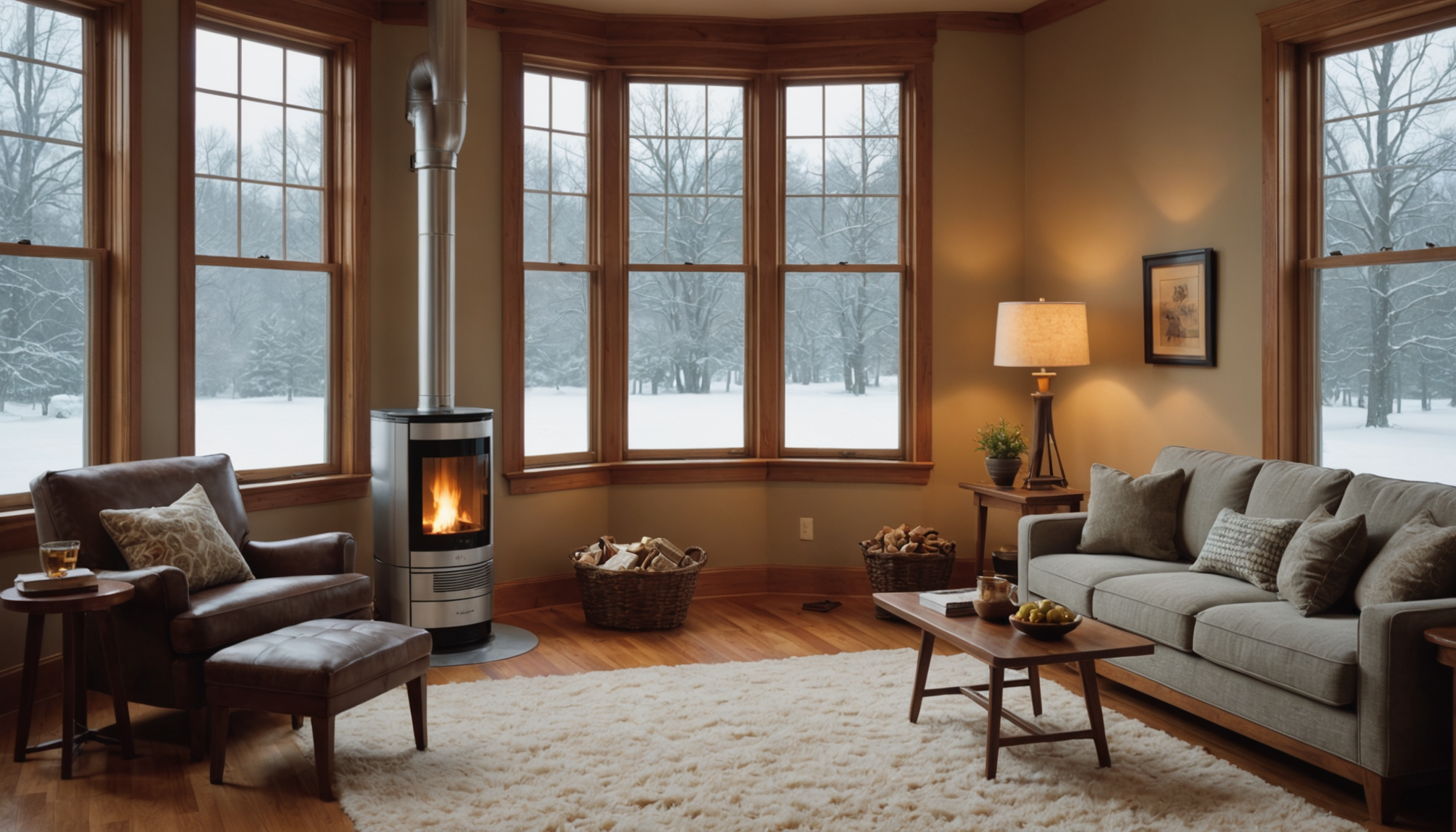When it comes to maintaining a comfortable and healthy home environment, understanding local climate conditions is crucial. In Missouri, the humid continental climate characterized by hot, humid summers and cold, dry winters poses unique challenges to homeowners. Managing these fluctuations in humidity is an integral part of optimizing indoor air quality and overall comfort.
Humidity levels play a vital role in how comfortable your home feels. Too much humidity in the summer can make the air feel oppressive and stuffy, while too little in the winter can lead to dry skin, static electricity, and potential damage to wooden furniture and flooring. According to data from the National Oceanic and Atmospheric Administration (NOAA), Missouri experiences average humidity levels that can range significantly throughout the year, often requiring strategic management to ensure that indoor conditions remain stable and conducive to comfort.
In the winter, central heating systems can exacerbate low humidity levels, leading to a variety of potential issues. This is where HVAC systems and humidifiers come into play. A whole-house humidifier, integrated with your existing HVAC system, can help maintain optimal humidity levels, averting the discomfort that comes with overly dry indoor air. Expert sources, such as the American Society of Heating, Refrigerating and Air-Conditioning Engineers (ASHRAE), recommend keeping indoor humidity levels between 30% and 50% to avoid these problems and maintain a healthy home environment.
Understanding how the unique climatic conditions of Missouri affect indoor humidity is the first step in deciding whether a whole-house humidifier could be beneficial. Analyzing factors such as seasonal weather patterns, the structure of your home, and existing HVAC infrastructure will provide insights into your specific needs. By addressing the challenges posed by Missouri’s weather, homeowners can take proactive steps to enhance their living conditions and safeguard their property against moisture-related damage.
Benefits of whole-house humidifiers
Whole-house humidifiers provide several key benefits that contribute to a more comfortable and healthy living environment, especially in areas like Missouri with its fluctuating climate. By seamlessly integrating with your existing HVAC system, these devices regulate indoor humidity levels, which can significantly enhance the comfort and air quality within your home.
One of the primary advantages is the alleviation of dry air conditions during the colder months. As temperatures drop and heating systems kick into gear, indoor air can become excessively dry, leading to issues such as dry skin, sore throats, and increased susceptibility to colds and respiratory problems. A whole-house humidifier can mitigate these uncomfortable and unhealthy conditions by ensuring that humidity levels remain balanced, thus supporting better respiratory health.
Additionally, maintaining optimal humidity levels also helps preserve the integrity of your home’s materials and possessions. Wood furnishings, flooring, and even musical instruments are susceptible to damage when exposed to extremely low humidity over prolonged periods. Cracking, warping, and other forms of deterioration can be effectively minimized, protecting your home’s interior and your investments.
Another compelling benefit is the potential reduction in energy costs. By keeping the indoor environment at a comfortable humidity level, whole-house humidifiers can make the air feel warmer, allowing residents to lower the thermostat without sacrificing comfort. This can result in lower heating bills during the coldest months of the year—a valuable advantage for homeowners looking to reduce their energy consumption.
Finally, balanced humidity levels can also enhance general comfort, minimizing static electricity, improving sleep quality, and creating a more pleasant atmosphere. For Missouri homeowners dealing with the challenges of seasonal humidity shifts, investing in a whole-house humidifier can be a smart choice to improve overall indoor quality and comfort.
- Whole-house humidifiers alleviate conditions associated with dry winter air, such as dry skin and increased respiratory issues.
- Optimal humidity levels contribute to preserving wood surfaces and furnishings, preventing cracking and warping.
- By maintaining a comfortable indoor environment, these devices can help lower energy bills through improved heating efficiency.
- Enhanced air quality and reduced static electricity lead to improved daily comfort and quality of life.
- Whole-house humidifiers integrate with existing HVAC systems, providing a seamless solution to manage indoor air quality year-round.
Potential drawbacks to consider
While whole-house humidifiers offer numerous advantages, they are not without their potential downsides. Homeowners in Missouri need to be aware of these issues to make informed decisions about their indoor air management systems.
One common drawback is the possibility of excessive humidity if the humidifier is not properly calibrated or maintained. Too much moisture in the air can lead to the growth of mold and mildew, which poses health risks and can damage the structural integrity of your home. To prevent these issues, it’s crucial to ensure your system is regularly maintained and that the humidity controller is set correctly. Most experts recommend keeping indoor humidity levels between 30% and 50% for maximum comfort and safety.
Another potential issue is the additional maintenance required for whole-house humidifiers. These systems often require regular cleaning to prevent the buildup of mineral deposits, bacteria, and mold inside the unit. Neglecting this maintenance can impair the unit’s functionality and result in poor indoor air quality. Homeowners should consult their humidifier’s manual and follow the recommended cleaning schedule, which might involve cleaning or replacing filters and checking for any blockages in the water line.
Energy consumption and costs can also be a concern. Although humidifiers can lower heating costs by making the air feel warmer, the device itself will add to your electricity bill. It’s important to weigh this against the potential savings on heating and consider energy-efficient models that minimize additional costs.
Lastly, improper sizing of the humidifier relative to the home’s size and ventilation can lead to inefficiency. A unit that is too small won’t effectively manage moisture levels throughout the house, while one that is too large may lead to the moisture-related problems mentioned earlier. Consulting with an HVAC professional can help ensure that you select the right size and type of humidifier for your home, matching it to the HVAC system to guarantee optimal performance.
By being informed about these drawbacks and addressing them proactively, homeowners in Missouri can enjoy the benefits of a whole-house humidifier while minimizing potential negative effects.
Types of whole-house humidifiers available
When it comes to managing humidity in Missouri homes, understanding the types of whole-house humidifiers available can guide homeowners in choosing the right system. Each type offers unique features that cater to different needs and preferences, making it essential to consider your home’s specific requirements and your personal comfort goals.
The most common types of whole-house humidifiers include bypass, fan-powered, and steam models. Bypass humidifiers are among the simplest and most economical. They work by diverting warm air from your HVAC system through a water panel, adding moisture to the heated air before it circulates through the home. This type of humidifier relies on the HVAC system’s blower fan, which means it’s best for homes that use their furnace frequently during the winter months. They are generally quieter and easier to install, making them a popular choice for those who prioritize budget and basic functionality.
Fan-powered humidifiers, as the name suggests, come with their own fans, which allow them to add moisture directly to the air passing through the unit. This additional feature makes them independent of the HVAC system’s cycling, which can lead to higher efficiency and consistent humidity control throughout the house. Although they are slightly more expensive than bypass models, their ability to operate continuously makes them a great option for larger homes or spaces that require more intensive moisture management.
Steam humidifiers, on the other hand, offer the most precise control over humidity levels. They use electricity to boil water and create steam, which is then distributed throughout the home. These systems are capable of producing a significant humidity output, responding quickly to changes in indoor air conditions. Consequently, they can maintain ideal humidity levels more consistently than other models. However, they typically come with higher installation and operating costs due to their complexity and energy requirements.
Each system type offers distinct advantages, and choosing the right one greatly depends on factors such as your home size, existing HVAC system, and budget. Consulting with an HVAC professional can provide valuable guidance, ensuring that the selected humidifier aligns effectively with your comfort and energy-efficiency goals. Expert advice can help you avoid potential pitfalls such as over-humidification or underperforming systems that fail to address Missouri’s unique climate challenges.
By selecting the most suitable whole-house humidifier, you can optimize indoor air quality and create a more comfortable living environment for you and your family—regardless of the state’s fluctuating weather. Embrace the opportunity to enhance your home’s comfort, knowing that the right choice will provide lasting benefits for both your health and your home.
Deciding if a humidifier is right for your home
When evaluating whether a whole-house humidifier is appropriate for your Missouri home, it’s essential to assess your specific needs and circumstances. Start by considering the unique climate challenges that Missouri presents, such as its humid summers and dry winters, which can have a significant impact on indoor air quality and comfort. Assess how these seasonal fluctuations in humidity affect you and your home’s materials, and recognize symptoms of low humidity like dry skin, respiratory discomfort, and static electricity that occur especially in winter months.
Next, evaluate your existing HVAC system to determine if it can support a whole-house humidifier. Many modern HVAC systems are designed to integrate with humidification equipment, but compatibility should be verified by an HVAC professional. They can also ensure that the humidifier is correctly sized and installed for optimal performance in your home’s specific environment.
Factor in your budget and potential cost savings. Although installing and operating a humidifier adds to initial expenses, the potential reduction in heating costs from improved comfort and energy efficiency can offset these investments over time. Moreover, maintaining optimal humidity levels can preserve your home’s interior and valuables, mitigating the risk of costly repairs related to damage caused by overly dry conditions.
Finally, consider your overall comfort and health goals. A whole-house humidifier can significantly improve indoor air quality and comfort, benefiting those with respiratory conditions or allergies by reducing symptoms triggered by dry air. Reflect on these benefits and weigh them against any potential drawbacks, such as additional maintenance and potential for over-humidification, to make an informed decision about whether such a system is right for your family and home. Consulting with an HVAC expert can provide personalized insights to help guide your choice, ensuring that you enhance your home’s comfort in alignment with Missouri’s challenging climate conditions.
- How do I know if my home in Missouri needs a humidifier?
- Evaluate your indoor air conditions, especially in winter when humidity levels drop. Symptoms such as dry skin, respiratory issues, or static electricity can indicate a need for a humidification system.
- What’s the best type of humidifier for my Missouri home?
- The most suitable humidifier depends on your home’s size, existing HVAC system, and budget. Consider consulting an HVAC professional to determine whether a bypass, fan-powered, or steam humidifier is the best fit for your needs.
- Can a whole-house humidifier save me money on heating bills?
- Yes, by maintaining optimal humidity levels, whole-house humidifiers make the air feel warmer, allowing you to lower the thermostat while still being comfortable, which can reduce heating costs.
- Are there any maintenance requirements I should be aware of with a humidifier?
- Regular maintenance, including cleaning and filter replacement, is crucial to prevent mineral buildup and ensure efficient operation. Follow the manufacturer’s guidelines to keep your humidifier functioning properly.
- What are the risks of having too much humidity in my home?
- Excessive humidity can lead to mold and mildew growth, potentially damaging your home and posing health risks. It’s important to keep your system well-maintained and monitor humidity levels to avoid these issues.

